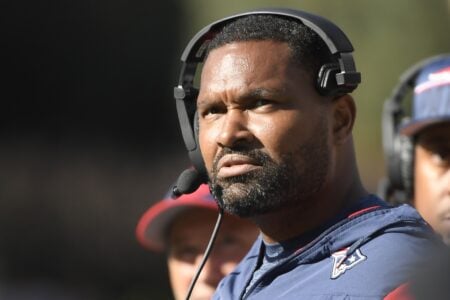I also don't buy the comeback "Well he acquired a first for the following year!" Come on Cousins, who buy into this? If he doesn't use the picks they are worthless until he does.
Yes, they are worthless until he does. The thing is they don't simply vaporize after an expiration date that coincides with the final game of the season.
Recycling first rounders every year does not make this roster stronger that year. There is no argument against that statement.
That is absolutely correct. As long as you are strictly looking at that one year, then trading into the future is of zero benefit for that current season.
He could be taking that recycled first rounder every year to his retirement. Fact is, that has never helped the Team.
This is not true, because one pick becomes two (or more), and 'never' extends beyond the final game of the current season.
Let's say I have a first round pick and trade it for a second round pick this year as well as next year's first. If you look at it from the very narrow perspective of how that affects this year's team and
only this year's team then yes, that is a horrible trade; all I did was give myself a later (less valuable pick).
Now let's say I repeat that same exercise every year from now to the end of time. What is the end result? I have netted one free extra second round pick in every single future draft class.
By comparison sake if Roger Goodell declared that he was going to give some team an extra second round pick in every draft from now to the day he was removed from office, would fans be okay with that? No, of course not; we would consider that to be an unfair advantage for that team.
So why are we upset if this team does something that has the same identical net effect?
Continually trading that first for next year's first and this year's second is the equivalent of living off the interest and never touching the principal. It doesn't matter what the success ratio of those second round picks is, as long as it is more than zero. Even if it is only one out of three or one out of four, it's still a 'free' pick that contributed to the team.
Does the concept of trading up to get a player that has a higher probability of being an impact player have merit? Yes it does.
Does the concept of standing pat and drafting two late first round players have merit? Yes it does.
Does the concept of trading down to gain additional picks, knowing that there is no such thing as a sure thing while working the draft like an annuity have merit? Yes it does.
There is no absolute correct way nor an absolute incorrect way. Personally I like the idea of the annuity that pays out each and every year, and lean towards the strategy of accumulating draft picks - because for every Peyton Manning there is a Ryan Leaf, and for every Vince Wilfork there is a Vernon Gholston.
I can see the arguments for both sides; even though I have an opinion on the matter I just don't think it as cut and dried, black and white with no shades of gray as either side makes it out to be.
Personally I wouldn't characterize not finding fault with the logic behind trading down as automatically being a blind Koolaid chugging homer, but again, that's just my opinion.


















